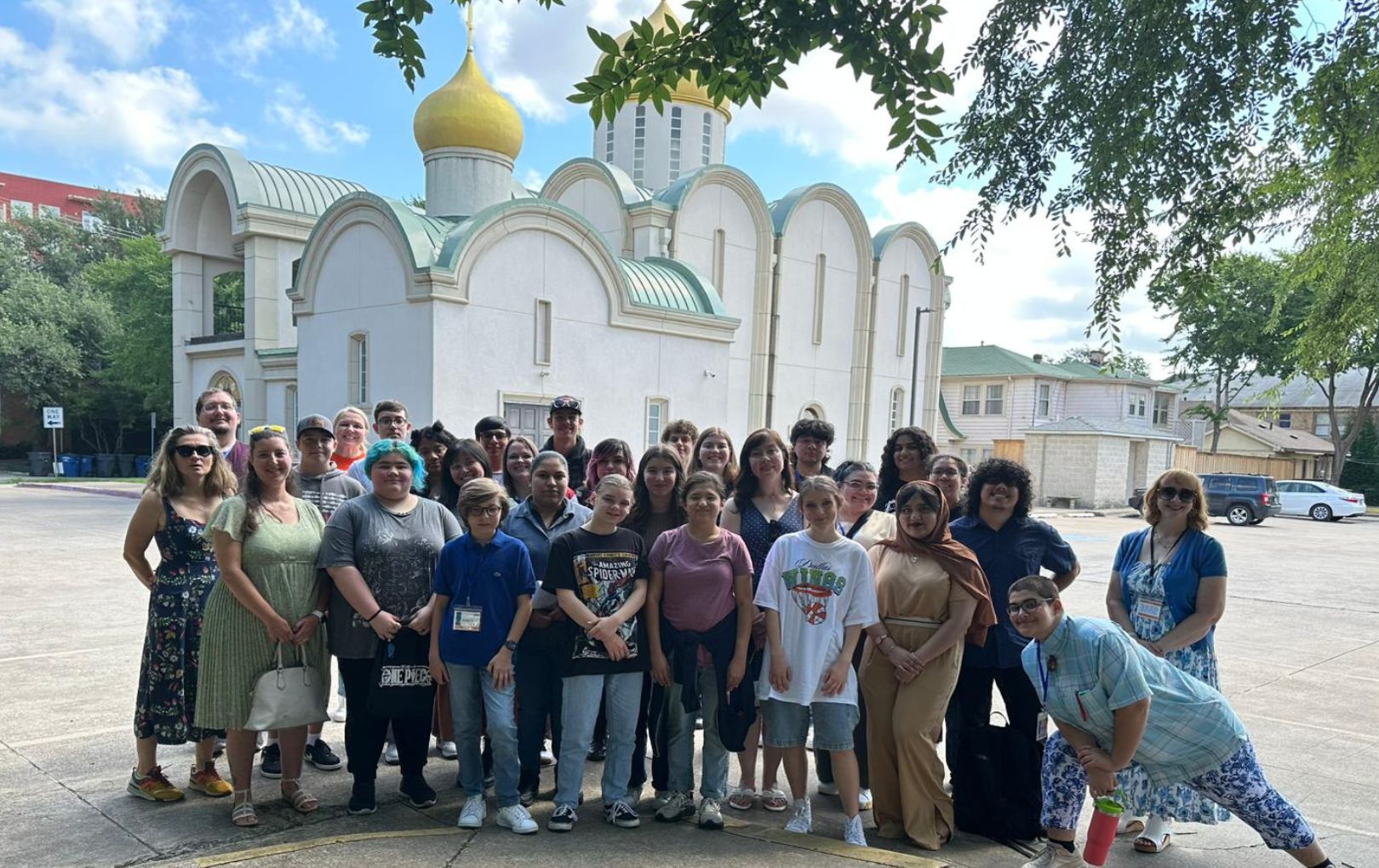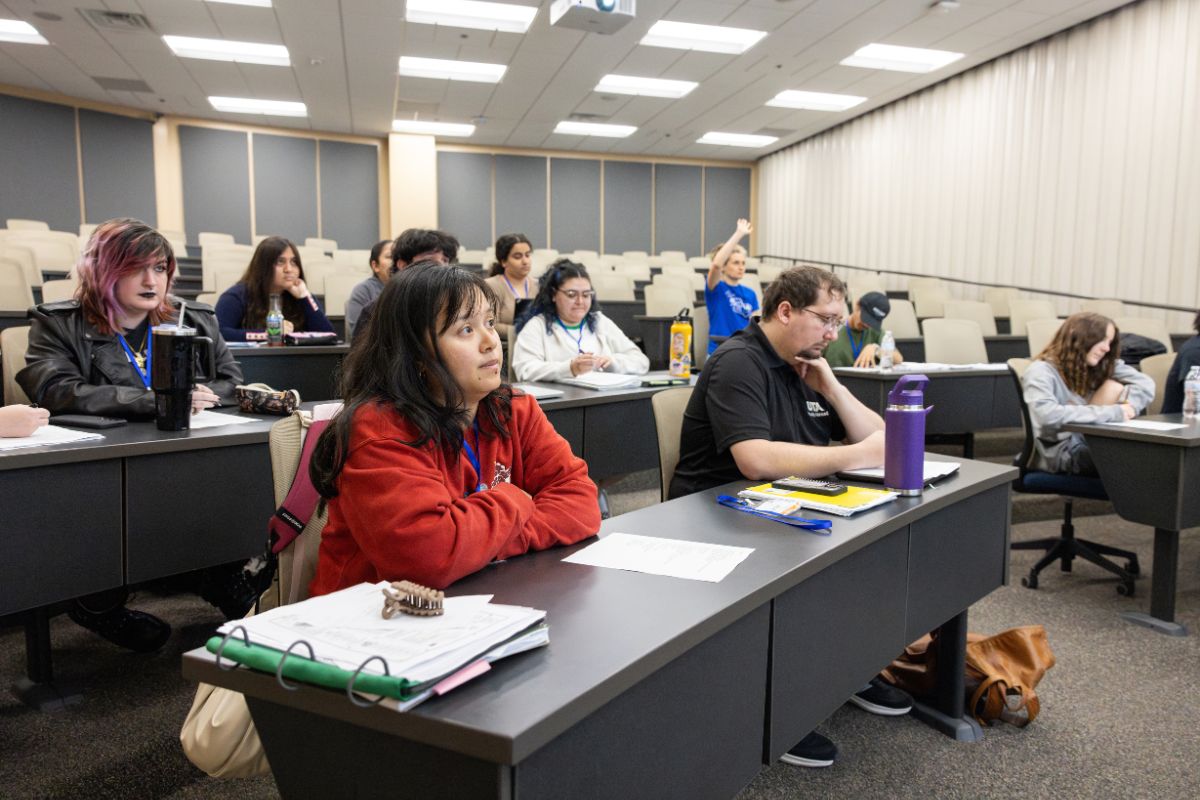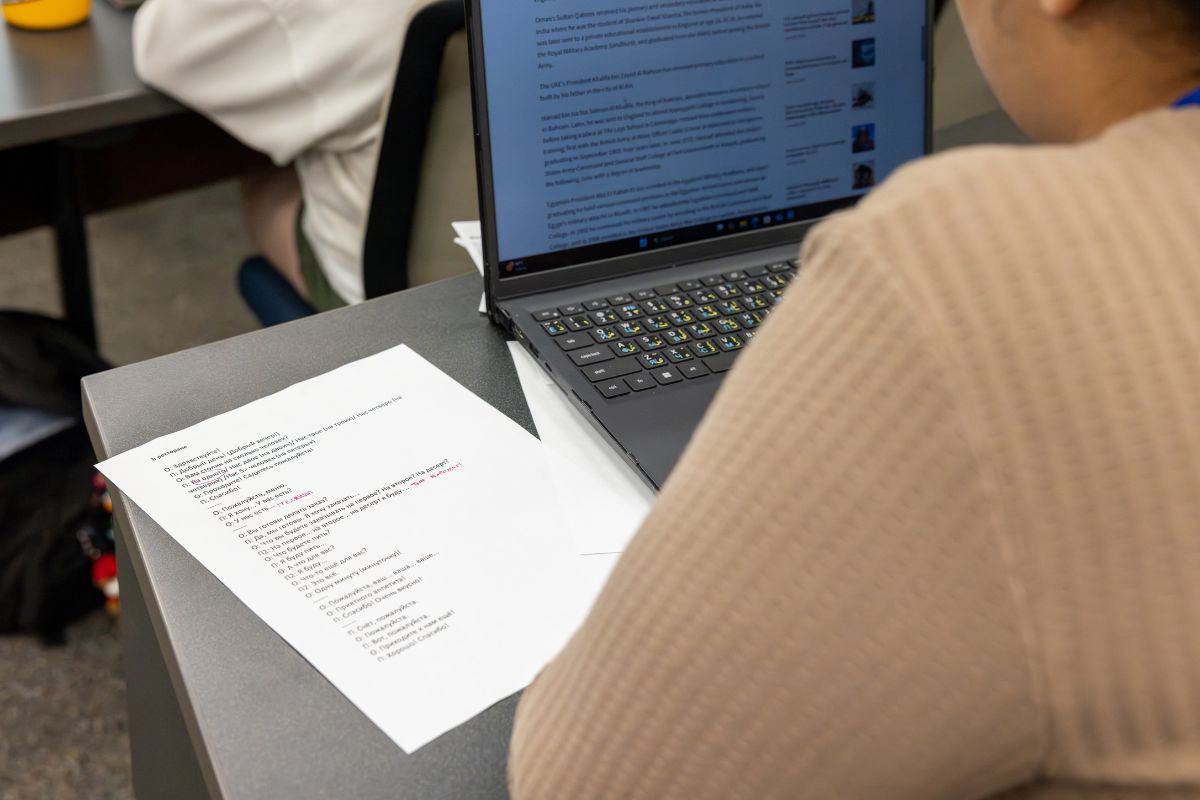UTA program builds Russian fluency for global roles

The University of Texas at Arlington immersed 30 high school and college students in a three-week summer Russian language and culture program designed to spark interest in academics and careers in critical languages.
Funded by the STARTALK grant from the National Security Agency, the program aims to expand the pipeline of skilled professionals needed for future national security roles in the military, diplomacy and intelligence.
Students learned through a series of role-plays focused on travel to Russia or other Russian-speaking countries like Belarus and Kazakhstan—planning the trip, navigating airports and hotels, sightseeing, ordering in restaurants and more. By the end of the program, they had gained basic Russian proficiency to travel and communicate with confidence abroad.

“I think the most important part about the STARTALK program is that it’s oriented toward real-life situations—that’s one of the principles of STARTALK language teaching,” said Iya Price, assistant professor of instruction in UT Arlington’s Department of Modern Languages and director of UTA’s STARTALK program. “Our program isn’t overly abstract or focused only on rules and explanations of the language the students are learning. We want them to be able to actually communicate and function in real-world settings using what they’ve learned.”
Austin Hardgrave, a senior studying German, applied for the STARTALK program after connecting with Russian students who visited UTA last year. That cultural exchange motivated him to learn the Russian language.
Related: UTA to offer year-long critical language programs
“Although my main focus right now is German, I wanted to lay a good foundation in Russian,” Hardgrave said. “I felt like this was a great opportunity to do that. Even if I don’t continue practicing Russian after this summer, in the future I feel I’ll still be able to quickly build on what I’ve gained here.”
Throughout the program, Price said students were tested on their listening, speaking, reading comprehension and writing skills. As an added benefit, they took a proficiency exam at the end of the program to certify their level of Russian. Depending on their test scores, UTA-enrolled students were eligible to receive credit hours on their transcripts.

“STARTALK has been transformational for our program and department,” Price said. “Since we first received the grant back in 2019, there have been so many great outcomes. The way we approach STARTALK makes it fun and engaging, with the hope the high school and college students enroll at UTA and continue studying Russian.”
Beckett Potter, who, at only 13 years old, has graduated high school and earned an associate’s degree last spring, wanted to learn Russian because of the country’s relevance to many of his interests—including aerospace, politics and medicine.
“Regardless of what career I choose to pursue, Russia will always be a major player in the fields I’m interested in, and being proficient in Russian will be an important skill to have,” Potter said. “I’m also currently learning Chinese and Spanish. In Russian, I’d like to reach a high-intermediate level of understanding.”
About The University of Texas at Arlington (UTA)
Celebrating its 130th anniversary in 2025, The University of Texas at Arlington is a growing public research university in the heart of the thriving Dallas-Fort Worth metroplex. With a student body of over 41,000, UTA is the second-largest institution in the University of Texas System, offering more than 180 undergraduate and graduate degree programs. Recognized as a Carnegie R-1 university, UTA stands among the nation’s top 5% of institutions for research activity. UTA and its 280,000 alumni generate an annual economic impact of $28.8 billion for the state. The University has received the Innovation and Economic Prosperity designation from the Association of Public and Land Grant Universities and has earned recognition for its focus on student access and success, considered key drivers to economic growth and social progress for North Texas and beyond.